As Kenya opposition seeks to block police deployment to Haiti, Pentagon helps ready base
- Oops!Something went wrong.Please try again later.
- Oops!Something went wrong.Please try again later.
Along the northern perimeter of Haiti’s Toussaint Louverture International Airport, eight-foot-high shipping containers, stacked one on top of the other, dot the landscape, guarding a barely visible security wall that armed criminal groups have tried to penetrate.
Across the tarmac, a new traffic control tower is slowly rising.
And in a secure location, away from the prying eyes of airport workers and visitors, the skeletal construction of a base of operations for a new international force is taking shape. Under the searing Haitian sun, men in hard hats and reflective vests are digging trenches, operating cranes and moving building materials across an expansive compound behind an orange plastic divider. In front, five heavily armed khaki-clad foreign contractors keep watch.
As a nearly three-month-long insurgency by armed groups continues to paralyze much of Port-au-Prince, authorities in this volatile Caribbean nation, as well as in Washington and Miami, are feverishly working to bring back commercial traffic to Haiti’s main international airport and to ready its grounds for the arrival of an international security force.
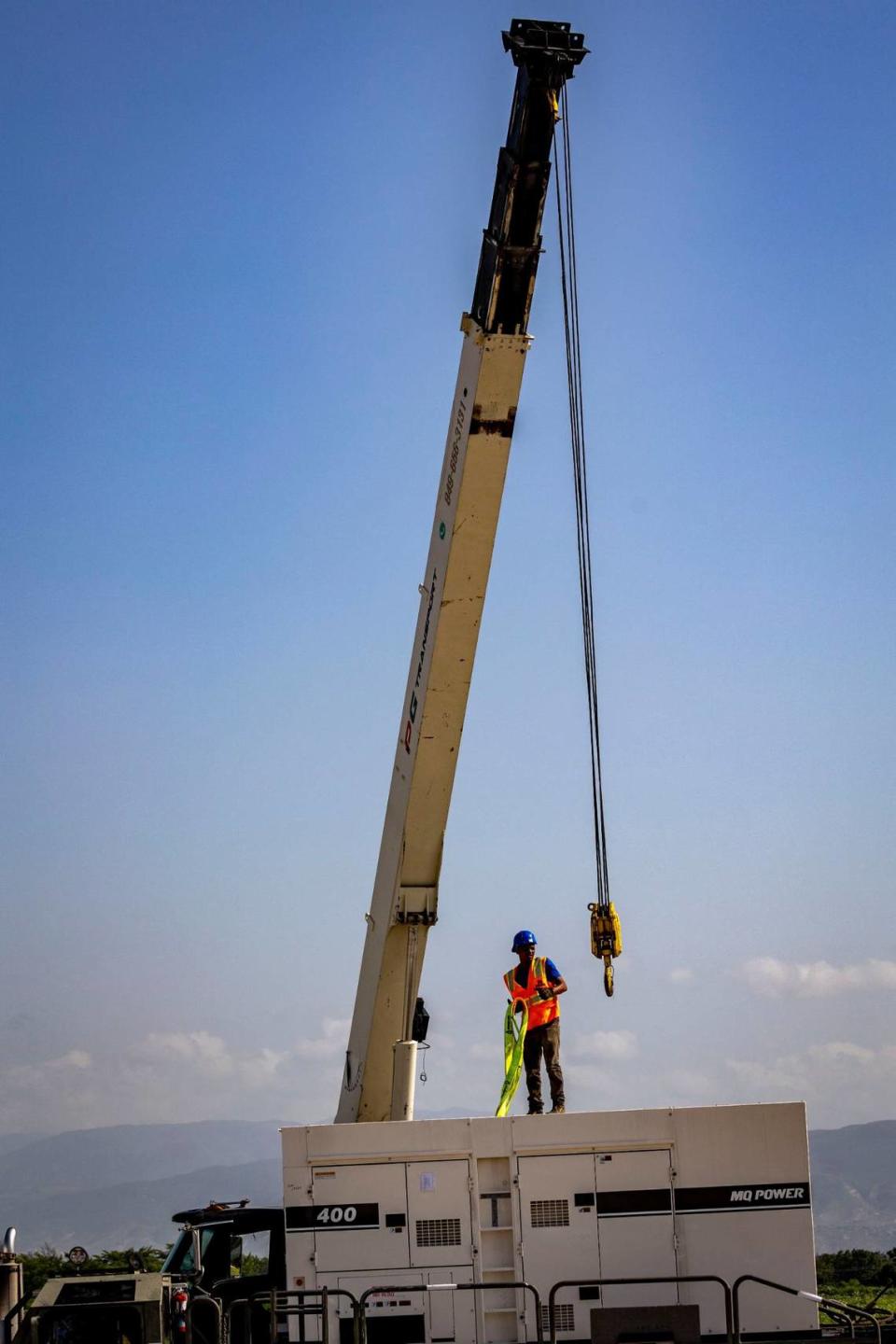
Seven months after the United Nations Security Council approved its deployment — and more than a year and a half after the Haitian government first appealed for military assistance from the international community — a Kenya-led Multinational Security Support mission is being readied. The deployment was paused in March following the forced resignation of Prime Minister Ariel Henry amid the gang insurrection against his government.
At the time, the Kenyan government said it was awaiting a new government in Haiti. Earlier this month, members of a newly installed Haitian presidential council, which is in the midst of choosing a new prime minister, wrote to Kenyan President William Ruto informing him that they had taken charge. They also reiterated the Henry government’s demand for the security mission.
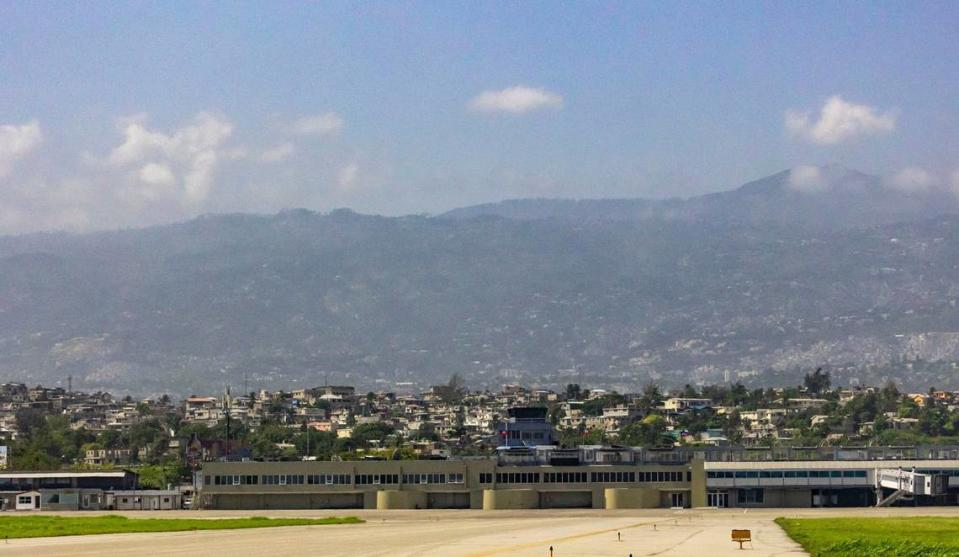
The first contingent of what’s expected to be a 2,500-member security force is supposed to arrive in Port-au-Prince sometime next week. But on Friday, lawyers for Kenya’s political opposition filed a legal challenge to block the deployment, Reuters reported, and a court set a June 12 hearing date. The challenge is based on a security agreement Ruto and the Haitian government signed to get around an earlier court decision that blocked the deployment. Henry was returning from Nairobi, where he had gone to sign the agreement, when gangs launched their insurrection.
How the latest challenge will affect the deployment remains unclear. Until now, the exact date of the police officers’ arrival had remained a closely guarded secret, as well as the exact location of the mission’s headquarters and the size of the initial group to be deployed. The numbers have varied from a few dozen Kenyans to hundreds.
The day before the legal challenge in Nairobi,the head of the U.S. Southern Command in Doral, Gen. Laura Richardson, told an audience at the Woodrow Wilson Center in Washington, D.C. that not only is the deployment of the Kenyans on track, but “we’ll be ready to go on 23rd of May.”
“We’ve been working very, very hard,” Richardson said, adding that the U.S. military is also focused on getting the airport and main seaport operational after both were shuttered by the violence in early March. “I think everybody’s gotta be hopeful and positive and looking at this …we’re going to make this happen this time to be successful.”
She noted that police and members of the Haitian Armed Forces have managed to push back attempts by armed groups to seize the airport, making it possible for Southcom to coordinate the arrival of dozens of U.S. military aircraft in recent weeks to support the mission. Richardson declined to go into details, saying she will leave that to Ruto and President Joe Biden to work out. The two leaders are scheduled to meet during Ruto’s visit to the U.S. on May 23, which will include a state dinner at the White House.
Richardson did, however, make one revelation about the forthcoming Kenya-led mission. There will be “limited U.S. personnel,” she said, helping with logistics during the mission, while several countries from the region will be contributing police forces and training.
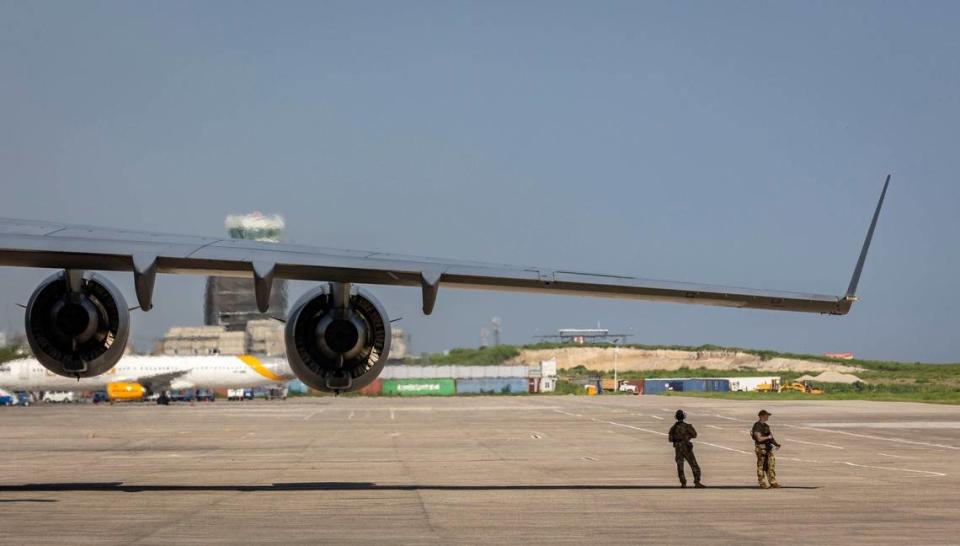
To help Haiti prepare to receive the mission, the Pentagon has flown Air Force C-17 planes into Port-au-Prince at least 37 times since April, including a flight on Wednesday that left Charleston, South Carolina, shortly after 5 a.m. and touched down on the runway of Toussaint Louverture two-and-half hours later.
On board were two large generators, two black-and-white all terrain vehicles and a pallet of oxygen generators. The equipment was among more than 900 tons of cargo that U.S. service men have delivered. While some of the cargo is desperately needed aid for humanitarian groups, most of it has been construction material and equipment to support both the mission and the Haiti National Police.
“The [police] and the armed forces have done a tremendous job, establishing the increased security at the airport but now that’s just the start,” Richardson said. “We’ve got to get the Kenyans in there.... They will have the capacity then to be able to get the port open ..to be able to get food in there, healthcare, fuel, all of the commodities.”
Kenyans’ arrival
After months of assaults by an alliance of armed gangs trying to take down the government, the area around the international and domestic airports has been relatively calm. On Wednesday, not a single gunshot was heard during the nearly three hours the C-17 was on the ground unloading its cargo.
Still, the arrival of the Kenyan police and others from across the Caribbean can’t come soon enough for Haiti’s exhausted police ranks. The assaults have plunged Haiti into an unprecedented crisis, with criminal groups attacking police stations after freeing thousands of prisoners and attempting to take over key government institutions like the airport, seaport and National Palace.
“We have had no choice but to fight,” Haiti police chief Frantz Elbé said, sitting in the diplomatic lounge of the airport, which hasn’t been in use since international flights were suspended on March 4.
“But for us to succeed in quickly dismantling the gangs,” he added, “we will need the support of the international community.”
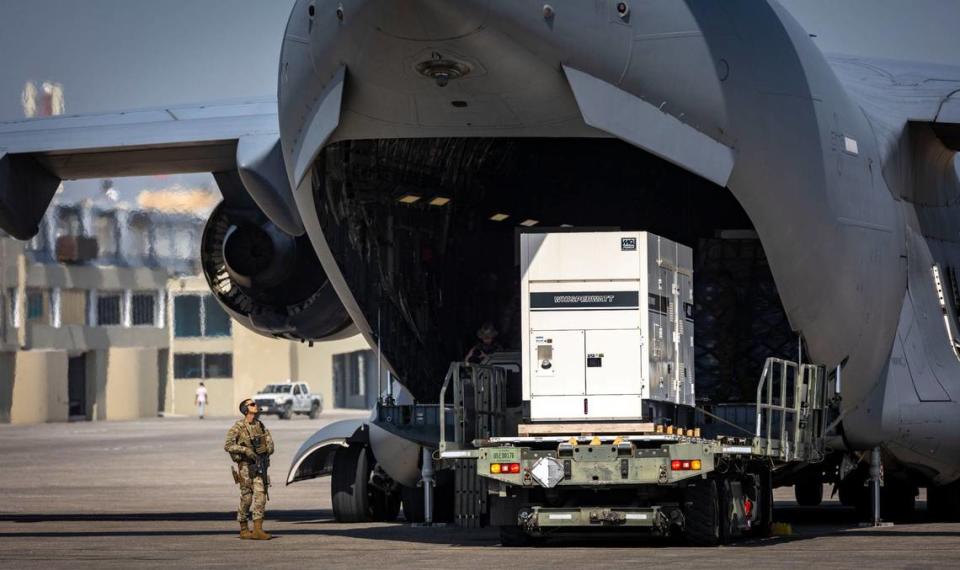
Airport security
During her talk, Richardson said in addition to supporting the mission, she is focused on getting the country’s airport reopened.
All three U.S. major carriers suspended commercial flights in and out of Port-au-Prince on March 4, and two have announced a restart of flights for after the 23rd of May.
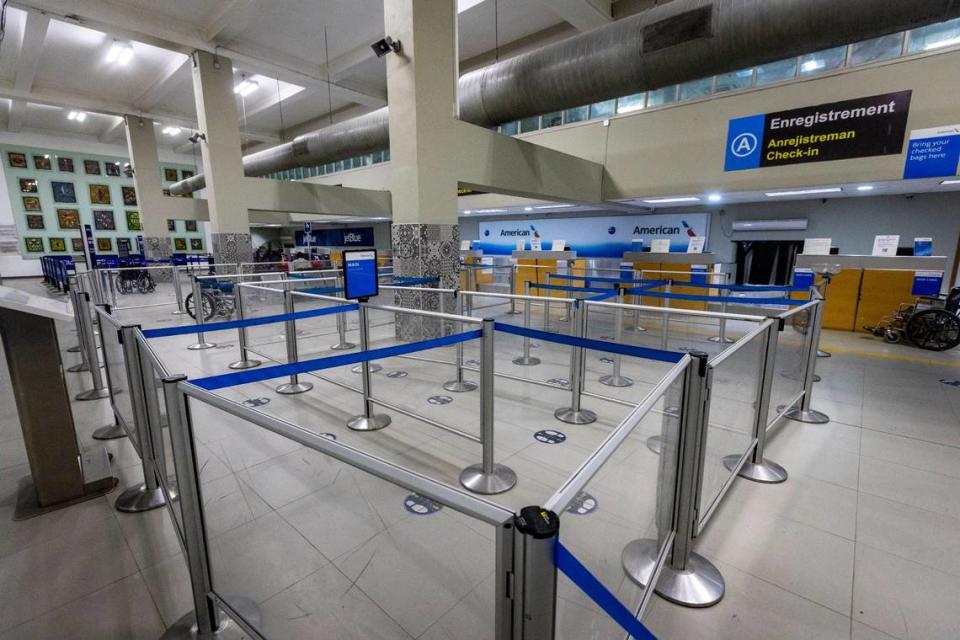
Both the heads of Haiti’s National Airport Authority and National Office of Civil Aviation say they would like to see international air traffic resume sooner rather than later, and plan to meet with airline representatives in coming days. The government, they say, has spent more than $2.2 million in securing the airport’s grounds, including demolishing 187 structures that surrounded the terminals and that armed groups used to launch unsuccessful attacks.
“For the second phase of this operation, we’ve already identified about 500 additional structures that will need to be destroyed,” said Yves Ducarmel Francois, the director of the airport authority.
Officials also plan to extend the airport’s buffer zone, currently being guarded by members of the Armed Forces in the makeshift guardhouses made from shipping containers.
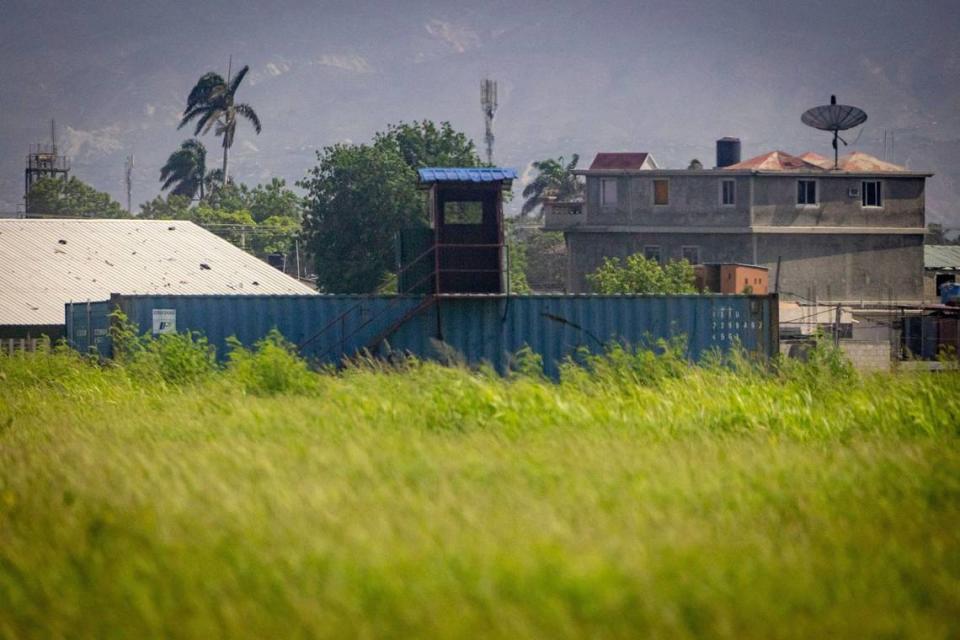
Francois said the security system for departing passengers is also getting an upgrade, courtesy of the U.S. Transportation Security Administration.
He and others here insist that despite the suspension of flights, the capital’s airports are not closed. On Wednesday, while passenger lines and reservation desks were empty, the facility was packed with workers. Some were observed mopping the floors as others manned security posts.
Businesses selling duty free liquor ad designer merchandise were shuttered, underscoring the financial toll of the crisis.
“Everything is blocked,” said Francois. “We are doing everything possible to see if we can have flights resume.”
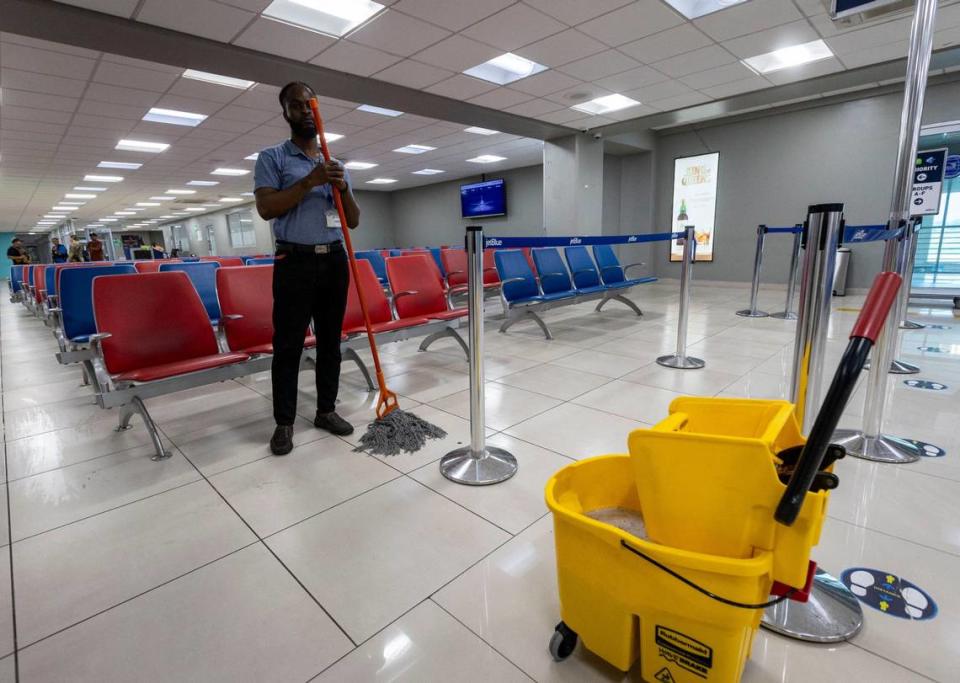
In an email to passengers, national carrier Sunrise Airways, which was the first airline to suspend services after three of its planes parked on the tarmac were struck by bullets on Feb. 29, said it will resume both domestic and U.S.-bound flights to Miami International Airport out of Port-au-Prince on Monday.
Lt. Col. Laurent Joseph Dumas, the head of the National Office of Civil Aviation, said agencies have been collaborating to put in place a security plan to get the airport reopened, support the international mission and instill confidence in travelers. He said there is a new radar system in place to better guide landings.
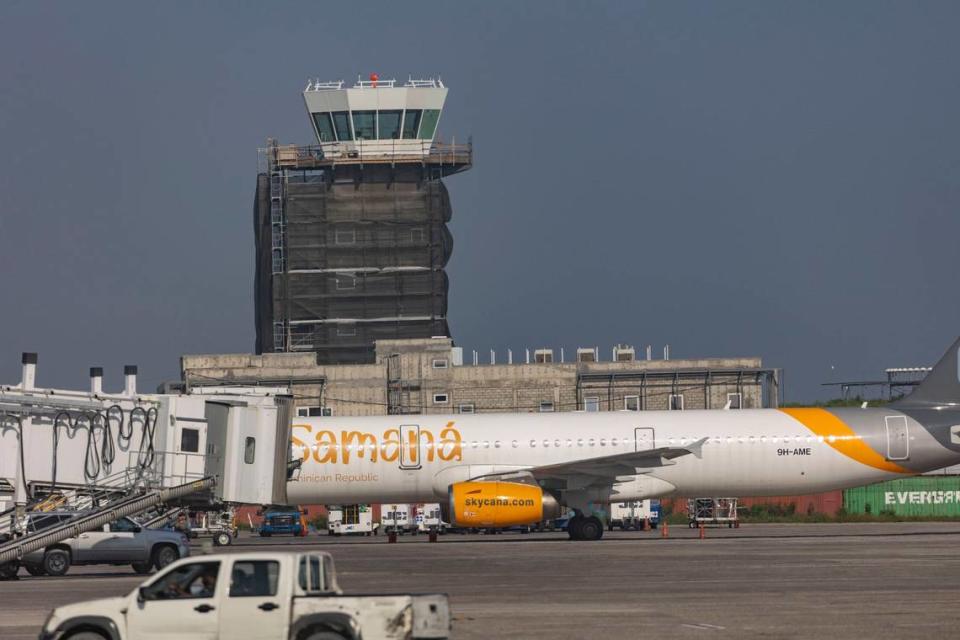
Haitian authorities say they know they need to convince travelers and airlines it is safe to return to the capital. That means nothing is off the table, including changing the approach of arriving airplanes.
Less gunfire but attacks continue
After weeks of heavy gunfire, the gangs appear less aggressive at the moment, leading to speculation that they are either low on ammunition or saving their bullets for the arrival of the international force.
Still, a recent attack over the weekend served as a fresh reminder of the volatility of the situation.
On Saturday, armed gangs stormed a police station in Gressier, a coastal community on the western tip of Port-au-Prince. The attack came a week after gangs raided another community in central Port-au-Prince. The coordinated attacks, the U.N. said this week, have displaced another 10,000 people, adding to the more than 90,000 already living in squalid school yards and public plazas since late February and the more than 360,000 who were forced to flee over the last three years.
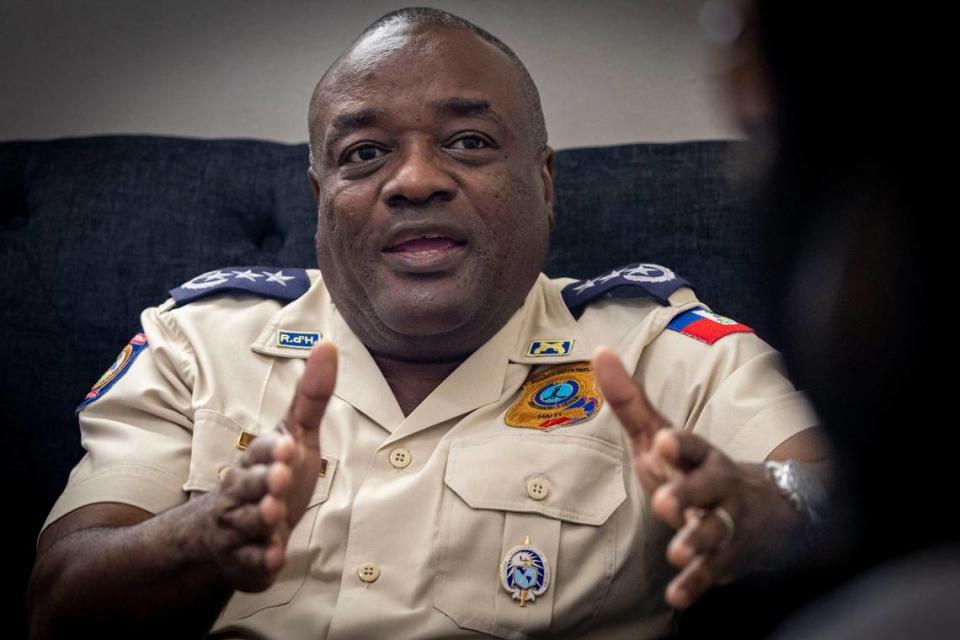
Elbé, who has been criticized for not doing enough to secure the capital, said 48 hours after the raid on Gressier police were back in control following the deployment of specialized units.
While specialized Haitian police units have shown an ability to resist gang takeovers, they have struggled to maintain control of some areas. This is where the police chief is hoping the outside force will help as they join police in operations.
U.S. support
Since 2021, the U.S. Bureau of International Narcotics and Law Enforcement Affairs has allocated $189 million for policing in Haiti. The money has helped develop leadership within the force, assisted with the creation and training of a new SWAT unit.
In recent weeks, the bureau has also provided equipment to the Haiti National Police, including chartering flights to deliver two armored vehicles, meals ready to eat, bulletproof vests and drones.
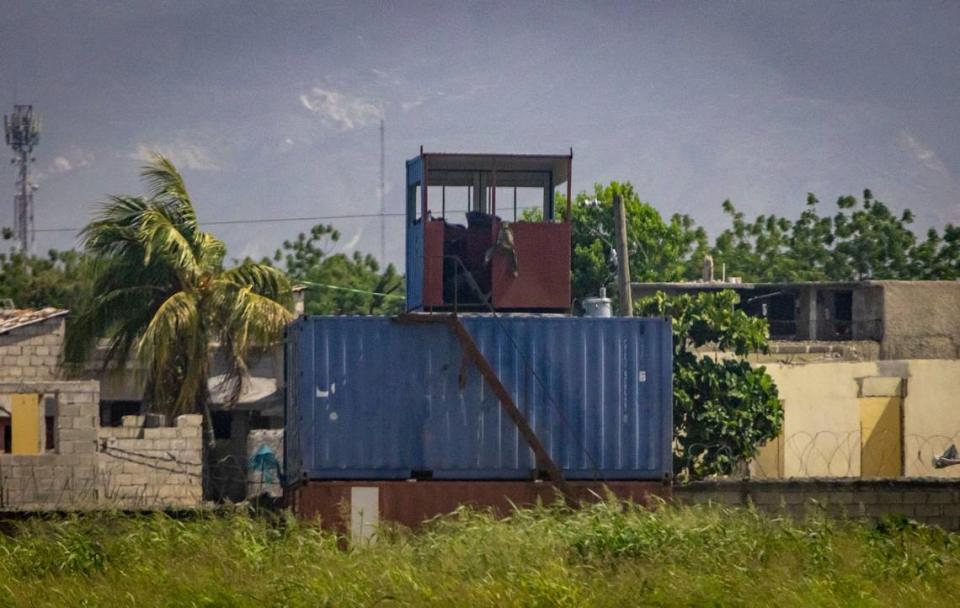
The U.N. this week continued to call for international donors to support the mission to Haiti, reminding them that schools and hospitals have been looted or destroyed, women and girls sexually assaulted. So far, six countries have officially notified the U.N. of their intent to support the mission: The Bahamas, Bangladesh, Barbados, Benin, Belize and Chad. Jamaica, according to a State Department spokesperson, will serve as the lead for Caribbean countries.
Approximately 250 Jamaican personnel have been vetted for the mission, and about 400 Kenyans who have gone through background checks by the U.S.
“We are still engaging on vetting with additional countries that have pledged personnel for the mission,” a spokesperson from the State Department said.

